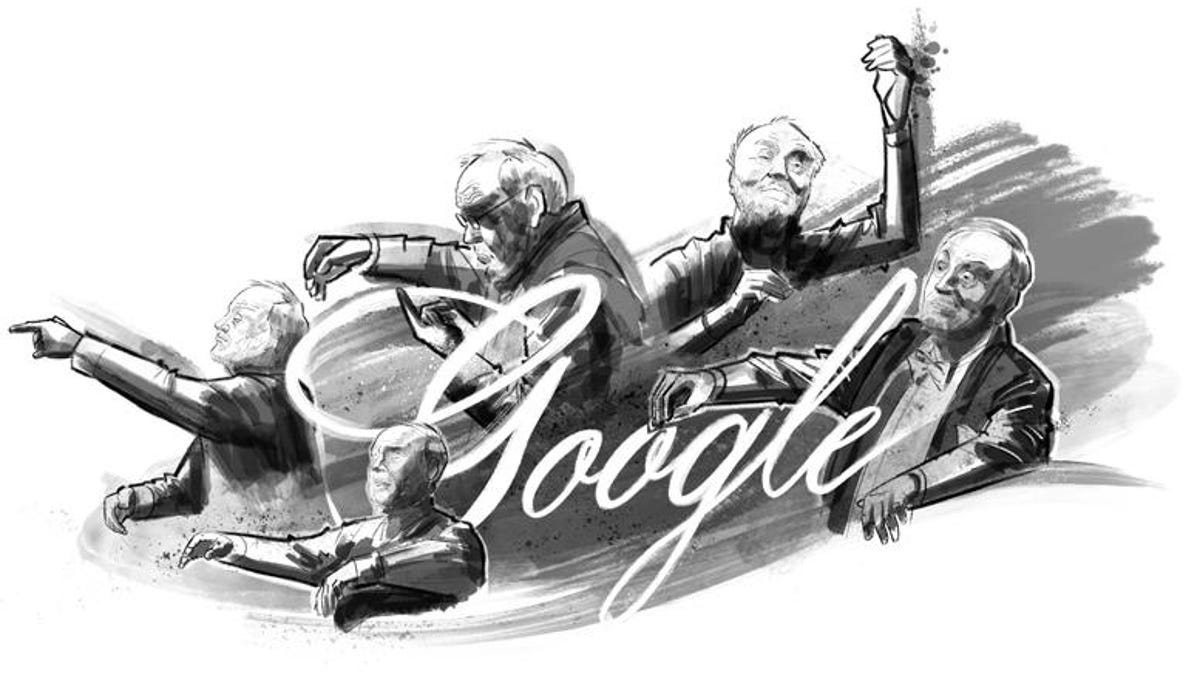Google Doodle celebrates renowned conductor Kurt Masur
The conductor helped avert bloodshed during pro-democracy protests in East Germany in 1989.

Google celebrates Kurt Masur's 91st birthday.
Conductor Kurt Masur was an ardent believer in the healing power of music.
Considered one of the last old-style maestros, Masur (pronounced mah-ZOOR) spent much of his career in East Germany, serving as music director of Leipzig's Gewandhaus Orchestra for 26 years. Later, he would lead the New York Philharmonic for 11 years, reinvigorating an orchestra previously known for years of lackluster performances.
But it's Masur's efforts orchestrating peace that Google highlights in a doodle Wednesday celebrating the conductor's 91st birthday. In 1989, when Leipzig was at the center of the pro-democracy movement that resulted in the fall of the Berlin Wall, Masur was part of a group that helped avert a confrontation between protesters and police that could have led to bloodshed.
As Leipzig's streets filled with thousands of protesters, Masur used his influence as Gewandhaus' leader to convene a meeting of musicians, dissidents, police and Communist Party officials that drafted a statement calling for nonviolence and open dialogue. A month later, East Germany's Communist government was toppled in a bloodless revolution.
In 1991, Masur moved on to the New York Philharmonic, where a decade later he would again employ the healing powers of music in the aftermath of the 9/11 terrorist attacks. Nine days after the attacks left New York City physically and emotionally battered, Masur led the orchestra in a nationally broadcast performance of Brahms' "German Requiem." The New York Times called the performance "his finest hour, and a gift to the city."
For his global cultural and humanitarian accomplishments, Masur received multiple honors, including Grand Officer of the Legion of Honor from the French government, New York City Cultural Ambassador, Commander Cross of Merit of the Polish Republic, Honorary Citizen of Brieg, the Leo Baeck Medal for promoting tolerance and social justice, and a Goldene Henne award for his work in public policy.
Born on July 18, 1927, in the Prussian town of Brieg (now in Poland), Masur trained as a pianist, organist, cellist and percussionist until the age of 16, when an injury to his right hand ended his playing ambitions and led him to concentrate on conducting.
Masur, who died in 2015 at the age of 88, is depicted in Wednesday's doodle conducting an orchestra without a baton, due to his childhood injury.
Doodling our world: Check out Google's previous celebrations of people, events and holidays that impact our lives.
Cambridge Analytica: Everything you need to know about Facebook's data mining scandal.

